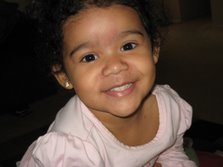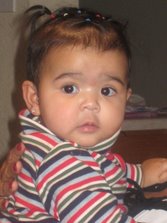Monday, June 11, 2007
Response 4
I think it is especially difficulty for researchers to agree on the CPH because they have all done specific studies to prove their theory correct. Each one of them has proven their theory in one way or another. I think that age has less to do with learning a language than all these researchers would like to admit. I think there are a combination of factors that influence language learning at any age. The laterization theory tells us that a child would have fully laterized the left side of the brain by the age they reach puberty or younger. I think we all know that there have been many people who acquire language at an older age and learn it well. I don't think that there is a critical period where people should learn a language. As a child, we don't just learn the language--you can't give a two year old the words, dad, mom, cookie and milk without showing them what they are and how to ask for them. We model with children and I think sometimes we forget that. We expect to give an older language learner a list of words and then say ok use them. That is not how it works. If a child wants a cookie, he has to hear the word, have the item shown to them and even get a taste--once they like it, then they'll remember 'want cookie' gets me one. I have met many adults who have learned a second language quickly. They were highly motivated and they did a variety of things like research, conversation and immersion to become fluent in a short period of time. There are definitely specific steps to take but I don't believe that there will come a period in a person's age when they will be unable to learn a second language.
Subscribe to:
Post Comments (Atom)


No comments:
Post a Comment